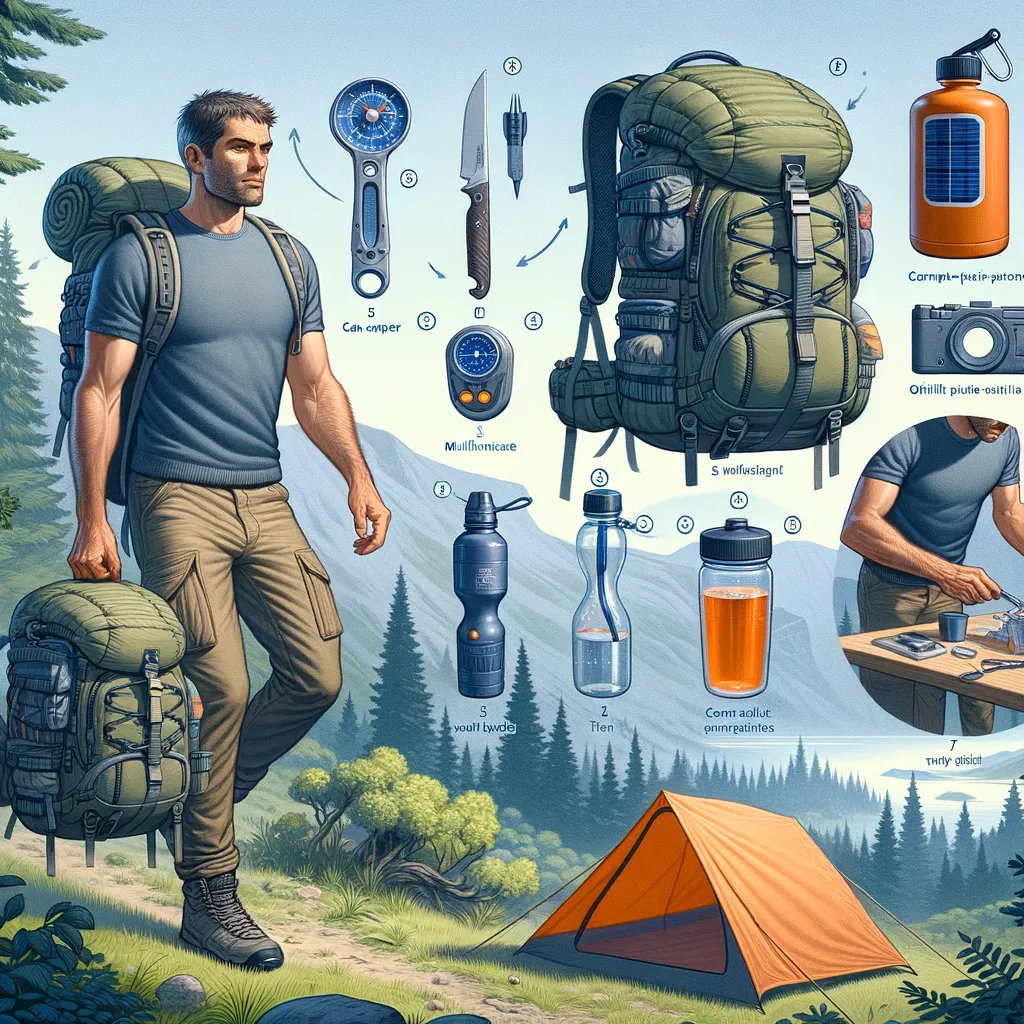Packing Light: Essential Tips for Reducing Your Travel Impact
Welcome, eco-conscious parents! Are you looking to make your family outings not just memorable but also environmentally friendly? You’re in the right place! Packing light doesn’t just ease the burden on your shoulders; it also helps in reducing your travel footprint, making your adventures more sustainable. In this comprehensive guide, we’ll provide you with invaluable tips on how to pack efficiently and responsibly, ensuring your family leaves only footprints and takes only memories. Before we dive in, remember to check out Camping for essential gear, and explore Camp places for your next eco-friendly destination.
Understanding the Importance of Packing Light
First and foremost, let’s explore why packing light is critical. Travel, especially with kids, often tempts us to overpack, preparing for every possible scenario. However, carrying less means fewer emissions from transportation, less energy used in accommodation, and a more genuine engagement with local communities and nature. Additionally, a minimalist approach can teach our children valuable lessons about sustainability and simplicity.
Start with a Sustainable Packing List
To begin, creating a sustainable packing list is key. Focus on items that are versatile, durable, and necessary. Opt for eco-friendly products made from sustainable materials whenever possible. This not only reduces waste but also supports responsible manufacturing practices.
Choose Eco-Friendly Travel Gear
When selecting travel gear, quality over quantity prevails. Durable goods may come with a higher upfront cost but considering their longevity and lesser environmental impact, they’re worth the investment. From backpacks made of recycled materials to biodegradable toiletries, every eco-friendly choice contributes to a greener planet.
Embrace the Share Economy
Instead of buying new gear for every trip, consider renting equipment or participating in gear swap communities. This is particularly useful for specialized items like camping gear or winter sports equipment. Not only does this save you money, but it also reduces the demand for new products, leading to lower resource consumption and waste.
Optimize Your Wardrobe
Selecting the right clothes can significantly reduce your luggage size. Choose lightweight, compact, and versatile pieces that can be mixed and matched to create multiple outfits. Favor items that are quick-drying and can be easily hand-washed. Packing layers rather than bulky items allows for adaptability to changing weather, minimizing the need for excess clothing.
Reduce, Reuse, Recycle
Adopting the three R’s of waste management—reduce, reuse, recycle—can significantly impact your travel footprint. Bring reusable water bottles, cutlery, and straws instead of single-use plastics. Opt for digital tickets and boarding passes to minimize paper waste. And always dispose of any waste responsibly, recycling whenever possible.
Traveling Light with Kids
Packing light with children in tow might seem daunting, but it’s entirely achievable with some planning. Involve them in the packing process, helping them understand the importance of packing only what’s necessary and the environmental impact of their choices. Encourage them to select a favorite toy or book rather than packing a plethora of options.
Remember, traveling light is not just about reducing the weight of your luggage. It’s about making travel easier, more enjoyable, and more sustainable. By opting for less, you contribute to a healthier planet, setting a positive example for your children and making your adventures truly meaningful.
Stay tuned as we explore more detailed strategies, lists, and tips to help you master the art of packing light for all your family trips, ensuring that every journey is as green as it is memorable.

Packing Light with Children: 5 Essential Tips for Eco-Friendly Family Travel
Embarking on a journey with your little ones can be one of the most rewarding experiences for a family. It’s an opportunity to explore, learn, and grow together. However, it comes with its own set of challenges, especially when trying to be mindful of the environmental impact your travel might have. In this guide, we delve into the essential tips every parent should know when preparing for eco-friendly travel, focusing on the mantra of packing light to make your family trips memorable, enjoyable, and kind to our planet.
1. Engaging Kids in Sustainable Travel Practices
Laying the foundation for eco-conscious traveling starts with involving your children in the packing process. Educate them on the importance of minimizing their travel footprint by choosing items carefully and understanding the weight each item adds to your luggage and, metaphorically, to the environment. This hands-on lesson in sustainability can cover everything from selecting a reusable water bottle to picking out a cherished toy that will accompany them on their journey, thereby avoiding the unnecessary packing of multiple, seldom-used toys and gadgets.
2. Mastering the Multi-Use Item Packing Strategy
Every item in your luggage should earn its place by serving multiple purposes, thereby reducing the quantity needed without compromising convenience and comfort. For instance, a sarong can be a beach towel, a blanket, or a cover-up. Similarly, investing in clothing that is versatile, durable, and suitable for various climates or situations means you can pack less while being prepared for everything. This approach not only lightens your bag but also reduces the resources consumed and waste generated during your travels.
3. Selecting Eco-Friendly and Durable Travel Products
Choose products that align with sustainable practices, such as items made from recycled materials, biodegradable toiletries, and travel gear designed to last. The upfront cost of these goods is often offset by their durability and the positive impact they have on reducing your environmental footprint. This mindful selection not only lessens the need for frequent replacements but also supports the broader goal of sustainability through conscious consumerism.
4. Embracing Digital Solutions for Travel Essentials
In today’s digital age, reducing paper waste has never been easier. Opt for digital tickets, boarding passes, and reservations whenever possible. Teach your children about the environmental benefits of digital over physical formats and encourage them to think digitally first. Additionally, consider downloading apps for maps, guides, and translations that can replace their physical counterparts, significantly cutting down on paper waste and making your luggage lighter.
5. Adopting a ‘Less is More’ Attitude Toward Packing
The concept of “less is more” is paramount when packing for an eco-friendly trip. A minimalist approach not only makes your journey lighter and more enjoyable but also instills in your children the value of simplicity and the essence of enjoying experiences over possessions. This invaluable lesson in practical sustainability encourages them to reflect on their needs versus wants, choosing to travel with items that are truly essential and leaving behind the excess.
Implementing these tips requires a shift in mindset and a commitment to sustainability, but the rewards are immense. Not only does packing light make traveling with children easier and more enjoyable, but it also sets a powerful example of environmental stewardship for the next generation. By choosing to travel in an eco-friendly manner, you’re contributing to the preservation of our beautiful planet for your children and future generations to enjoy.
As eco-conscious parents, preparing for a trip with the environment in mind doesn’t mean sacrificing comfort or convenience. It’s about making thoughtful choices that benefit our planet while still ensuring a memorable and enriching travel experience for the entire family. Embrace these tips, and embark on your journey with confidence, knowing that you’re making a positive impact every step of the way.
Disclaimer
The articles available via our website provide general information only and we strongly urge readers to exercise caution and conduct their own thorough research and fact-checking. The information presented should not be taken as absolute truth, and, to the maximum extent permitted by law, we will not be held liable for any inaccuracies or errors in the content. It is essential for individuals to independently verify and validate the information before making any decisions or taking any actions based on the articles.




